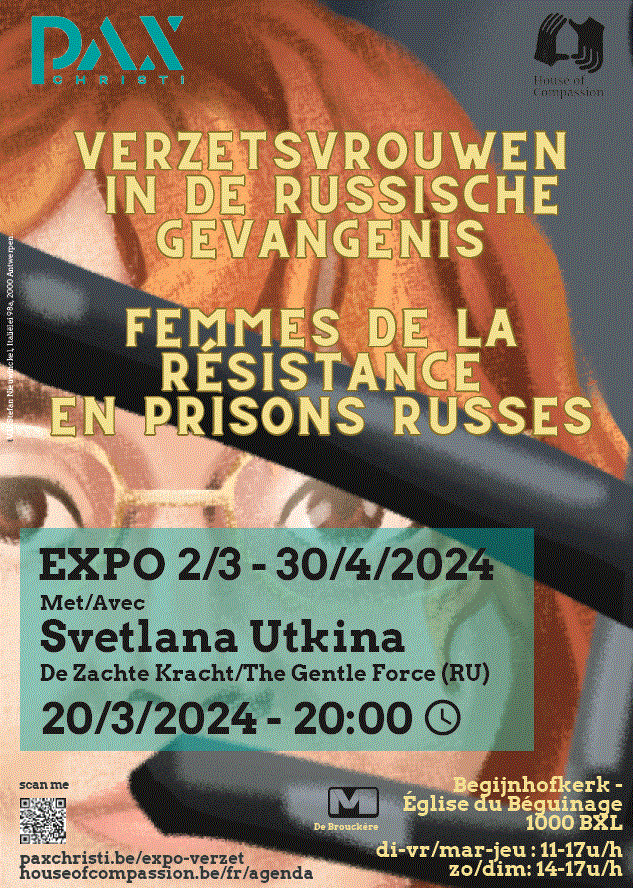Two people talked about their experiences as social workers and lawyers supporting people on the run.
Annouk Van Gestel, former editor-in-chief of Marie-Claire, was so shocked after a report in Calais that she engaged as an activist (and not just as a journalist).
In Calais, she had also noticed that the solidarity actions stirred up a lot of people.
After the camp in Calais was evacuated by force, many people also ended up in the Brussels Maximilian Park. She organized several actions herself and eventually also gave shelter to an underage refugee.
She was awakened very early one morning (at 5 a.m.), seven police officers gained access to her home and confiscated her PC, files, and mobile phone.
She was only later summoned to the police station and charged with human trafficking. She even risked imprisonment.
The case was dealt with in Dendermonde, together with ten other people suspected of smuggling, supporting and illegal acts involving refugees. It was an amalgam of totally different facts and cases.
To the public opinion, an image was created, that it was about smuggling of human beings and criminal acts.
Afterwards, after intervention, the trial was moved to Brussels where a completely different reading of the trial took place. In the meantime, of course, the suspicions had left, and the whole affair had a very big impact on her private life and family.
(Where there is smoke, there is fire, fear, people who approached her differently and so on).
She was only acquitted of the case in May 2021 and is now considering legal action against the Belgian state for indecent exposure.
However, Anouk has stayed busy, more active than ever, she is currently giving shelter to refugees again and has started, together with other people, a café annex meeting space in Ixelles (Al & Greta, Boulevard de la République 167, 1050 Brussels).
The second speaker was Alexis Deswaef, lawyer, and former president of the Human Rights League.
Alexis was also the counsellor Anouk Van Gestel, and strongly emphasized once again that the political world is mainly pursuing a repressive policy. Not only towards the refugees (every country wants to present itself as unattractive as possible towards refugees) but also towards people who show solidarity with refugees.
In this way, a culture of fear is created that prevents people from approaching and supporting vulnerable people in a humane way.
Fear of legal persecution, even imprisonment, imputation.
What the activists and solidarity groups are doing, however, is filling the gap in the humane reception of people on the run. Because the state fails to do so.
The Medusa plan, which the previous government helped set up to combat human smuggling, was in fact misused to track down and discourage solidarity workers.
Because repression has increased so much (border controls, therefore also dramas on the Med. Sea, barriers in Croatia, Hungary, Belarus), refugees are almost forced to seek refuge in rogue clans. So, the opposite is achieved because the merciless repression increases the smuggling of human beings.
Alexis Deswaerf underlines (during the question round) that in his many years of experience as a lawyer and adviser to refugees there is one constant.
If people had the choice to stay in their country of origin, they would never have emigrated.
However, if the political world does not fundamentally work on the causes that are at the root of migration (social inequality, economic exploitation, repression, poverty, climate), migration will only increase, despite all the repression.


